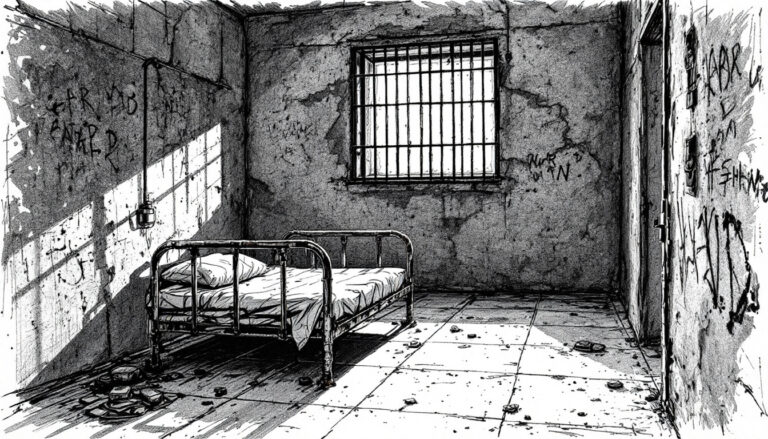My Dark Vanessa by Kate Elizabeth Russell – An In-Depth Book Review
In My Dark Vanessa, Kate Elizabeth Russell crafts a narrative that merges personal trauma with broader societal issues surrounding abuse and consent. The story centers on Vanessa, a 15-year-old girl entangled in a manipulative relationship with her 42-year-old teacher, Jacob Strane. Through Russell’s poignant writing, readers are invited to confront uncomfortable truths about power dynamics and the lasting scars of trauma.
This novel has sparked significant conversation in contemporary literary circles, especially in light of the #MeToo movement. As Vanessa navigates her complex feelings and memories, Russell challenges us to consider the nature of consent and the blurred lines that often go unnoticed.
For those just beginning to explore the depths of literature or seasoned readers, this book offers a critical view of how society grapples with the consequences of such relationships. Prepare for a thought-provoking examination that resonates with today’s discussions about abuse, power, and the journey toward healing.
Overview of the Plot
In My Dark Vanessa, readers are immersed in a narrative that interweaves past and present, showcasing the complexities of trauma and manipulation. The story unfolds through a dual timeline, juxtaposing Vanessa’s teenage years with her reflections as an adult. This structure deepens the exploration of Vanessa’s emotional journey, highlighting how her youthful perception colors her understanding of an abusive relationship.
Setting the Scene
The novel takes place primarily in the early 2000s, with Vanessa Wye’s life centered around her prestigious boarding school in Maine. This setting is crucial, as the isolated environment amplifies the internal struggles she faces. The academic pressure and social dynamics among students create a breeding ground for vulnerability. As a young girl longing for acceptance, Vanessa is drawn to her enigmatic teacher, Jacob Strane. The juxtaposition of a seemingly idyllic school setting against the dark undertones of their relationship heightens the narrative’s tension. This atmosphere not only shapes Vanessa’s experiences but also highlights the systemic issues surrounding power and consent, a reflection of broader societal concerns. For more details on the narrative backdrop, check out this review.
Main Characters
At the core of My Dark Vanessa are two compelling characters: Vanessa Wye and Jacob Strane.
- Vanessa Wye: A bright and complex protagonist, Vanessa grapples with deep-seated insecurities that stem from her upbringing. Her longing for affirmation and love makes her susceptible to Strane’s manipulative tactics. Through her eyes, readers witness the tumultuous shift from innocence to a distorted understanding of love shaped by coercion.
- Jacob Strane: Strane serves as the primary antagonist, embodying the predatory nature of an adult in a position of authority. Charismatic yet deeply troubling, his charm initially captivates Vanessa, masking his insidious intentions. His actions challenge the reader to confront uncomfortable truths about grooming and abuse. The dynamics between Vanessa and Strane illustrate the complex interplay of power and vulnerability.
The exploration of these characters draws readers into a profound discussion about consent and the long-lasting impact of abusive relationships. For a deeper character analysis, consider this insightful review.
Themes and Symbolism
My Dark Vanessa intricately weaves themes of power dynamics, trauma, and cultural reflections that resonate deeply in today’s society. Through Vanessa’s story, readers encounter not only her personal struggles but also the broader implications of abuse and consent. Each theme unfolds significance, inviting reflection and conversation.
Power Dynamics
The relationship between Vanessa and Strane starkly illustrates significant power imbalances. Strane, as an authority figure, wields control over Vanessa, exploiting her vulnerabilities. This manipulation is not overt; it operates subtly, emerging from moments of false affection and intellectual stimulation. As Vanessa grapples with her feelings, the blurred lines of consent become palpable.
Is it love, or is it coercion? This question lingers throughout the narrative. Viewers witness how authority can distort perceptions of relationships. Strane’s charm conceals his predatory intentions, making it difficult for Vanessa to differentiate between genuine affection and manipulation. This dynamic prompts readers to examine their own understanding of power within relationships. For a deeper understanding of these themes, check out this review.
Impact of Trauma
Russell poignantly depicts the long-lasting effects of trauma on Vanessa’s psyche. The narrative showcases not only the immediate consequences of her relationship with Strane but also the ripple effects that extend into her adult life. Trauma reshapes how Vanessa perceives relationships, trust, and even her own identity. As the story unfolds, readers witness her struggles with self-worth and the persistent feelings of shame and guilt.
Trauma manifests in various forms—nightmares, flashbacks, and distorted memories, all serving as reminders of her past. This portrayal emphasizes that trauma is not merely a past event but an ongoing journey of healing. Vanessa’s battle illustrates the complexity of reconciling her experiences with her present. For further insights into the impact of trauma in literature, consider this analysis.
Cultural Reflection
My Dark Vanessa resonates within the context of the #MeToo movement, serving as a powerful critique of societal attitudes towards consent and sexual violence. The novel challenges readers to confront uncomfortable truths about how society often romanticizes abusive relationships, particularly in literary contexts. The narrative pushes back against the glorification of predatory behavior, injecting urgency into the conversation around victimhood and agency.
Russell’s exploration highlights the complexities of navigating a culture that frequently silences victims. Vanessa’s story exemplifies the struggle many survivors face in coming forward. The novel proves particularly relevant as it discusses how societal narratives have evolved in the wake of the #MeToo movement. For additional context about these cultural implications, this article provides a comprehensive view of the intersection between literature and social change.
By addressing these themes and their implications, My Dark Vanessa becomes a compelling addition to the literary landscape, inviting readers to reflect on the profound effects of power, trauma, and cultural truths.
Writing Style and Structure
My Dark Vanessa showcases a distinctive writing style and structure that enhances its emotional impact. The use of first-person narration immerses readers in Vanessa’s inner world, creating a profound connection with her thoughts and feelings. This technique not only allows for a deeply personal exploration of trauma but also invites readers to engage critically with the moral complexities of her story.
Narrative Technique
The choice of a first-person narrative is central to the emotional intimacy of My Dark Vanessa. By presenting the story through Vanessa’s eyes, Russell effectively conveys her internal struggles and conflicting emotions with authenticity. This narrative style encourages readers to walk alongside Vanessa as she navigates her memories, making her experiences feel immediate and visceral.
Readers are drawn into Vanessa’s perspective—her confusion, her moments of clarity, and her painful realizations. This closeness prompts us to question our own understanding of consent and morality. As we witness Vanessa’s journey, we grapple with her justifications and the societal norms she has internalized. The first-person voice also emphasizes the isolation and loneliness she feels, perpetuated by the power dynamics in her relationship with Strane.
How does this intimacy influence our judgments of her choices? By engaging directly with her thoughts, we are compelled to reflect on our biases surrounding victimhood and agency. This narrative approach is pivotal in crafting a powerful reading experience, inviting ongoing conversations about consent and trauma in relationships. For more on Russell’s unique narrative style, visit this review.
Literary References
My Dark Vanessa is not just a personal story; it also engages with significant literary influences, most notably Vladimir Nabokov’s Lolita. The echoes of Nabokov’s work are interwoven throughout Russell’s narrative, both paying homage and re-examining the original themes of obsession and manipulation. Russell’s exploration of youthful desire and predatory behavior draws parallels to Nabokov’s complex portrayal of Humbert Humbert and Dolores Haze.
The title itself, My Dark Vanessa, is a nod to Pale Fire, reinforcing the link to Nabokov’s literary legacy. Readers familiar with Lolita may recognize the intertwining of innocence with exploitation, prompting a reevaluation of the way society romanticizes abusive relationships in fiction. Russell invites us to question not only the narrative we accept but also the implications of casting such stories in a sympathetic light.
By threading these references throughout her work, Russell enriches her narrative and challenges us to confront the uncomfortable realities behind the allure of forbidden love. This dialogue between past and present illuminates the impact of literature on our understanding of moral dilemmas, demanding a critical reader response. For a deeper analysis of these literary connections, explore this insightful review here.
Critical Reception and Impact
My Dark Vanessa by Kate Elizabeth Russell has garnered considerable attention, provoking essential conversations about abuse, consent, and the complexities of power dynamics. The critical reception of the book reflects both its powerful storytelling and the controversies surrounding its themes, allowing it to leave a significant mark on contemporary literature.
Awards and Recognition
The novel has been recognized across various platforms for its impactful narrative and thought-provoking exploration of sensitive issues. Notable accolades include:
- Longlisted for the 2021 Dylan Thomas Prize: This prestigious award celebrates new literary voices and has recognized Russell’s unique contribution to literature. More details can be found here.
- Instant New York Times Bestseller: The book quickly gained bestseller status, resonating with readers and critics alike. It’s described as an “exceedingly complex, inventive, resourceful examination of harm and power” by The New York Times Book Review.
- Nominated for various literary awards: Russell’s work has been acknowledged for its courage and depth in addressing difficult themes, further establishing her reputation in the literary world.
Public and Critical Responses
The public and critical responses to My Dark Vanessa have ignited pivotal discussions on the themes of betrayal, trauma, and cultural narratives surrounding abuse.
- Critical Acclaim: Many reviewers praised the novel for its raw honesty and emotional depth. NPR, for instance, highlights the book’s exploration of devastation resulting from predatory relationships, noting its impact on readers coming to terms with painful truths. For more insights, you can read the full review here.
- Controversial Reflection: The novel has not been without its critics. Some have argued that the portrayal of Vanessa’s experiences reflect broader societal attitudes toward victimhood. An article in The Guardian discusses how Russell addresses the pressure to portray a “likeable” victim while unveiling uncomfortable truths about the complexities of consent. For further reading, check out this discussion here.
- Cultural Conversations: Given its release amid the #MeToo movement, many readers see My Dark Vanessa as a necessary narrative that challenges the romanticization of abusive dynamics in literature. The story invites dialogue about how society views and treats survivors of abuse. The intersection of this novel with contemporary issues is explored further in various articles, including this piece from BuzzFeed News, highlighting its relevance to current discourse: read more here.
The multifaceted reception of My Dark Vanessa not only underscores the quality of Russell’s writing but also emphasizes the critical need for discussions around difficult topics, marking its impact on both readers and the literary community.
Conclusion and Personal Reflection
As I reflect on My Dark Vanessa, it’s clear that this novel holds a powerful mirror to society’s ongoing struggles with consent and agency. Russell doesn’t just tell Vanessa’s story; she intricately explores the psychological layers that surround her experiences, encouraging readers to engage with complex themes. This work challenges us to examine our societal narratives surrounding abuse and the often blurry definitions of love and consent.
Final Thoughts on the Novel
The emotional weight of Russell’s storytelling lingers long after the last page is turned. Many readers may find themselves contemplating their own understanding of relationships, particularly those marked by power imbalances. The discomfort generated by Vanessa’s experiences serves as a catalyst for conversations around how society handles such sensitive topics. It raises questions about accountability and the responsibility of those in positions of power. How do we support survivors while challenging harmful narratives?
The nuances embedded in this novel may prompt us to rethink how we define victimhood and culpability. To understand these themes more deeply, a broader look at the cultural conversations surrounding this book is important. For additional insights, check out this review.
Encouraging Reflection
Ultimately, My Dark Vanessa invites you to take a hard look at your perspectives on consent and manipulation. Have you considered how societal narratives have influenced your understanding of relationships? As we see through Vanessa’s journey, there is a pressing need to rethink the dynamics at play in situations like hers. The more we reflect on these issues, the better equipped we are to discuss and address them in our own lives.
By engaging with this book’s rich themes, you become part of a larger dialogue about the impact of trauma and the importance of listening to survivors. Russell’s powerful narrative encourages you not only to witness Vanessa’s struggle but also to actively participate in the ongoing conversations about consent and abuse. For further exploration of the book’s themes, this resource offers a thoughtful analysis: read more here.







